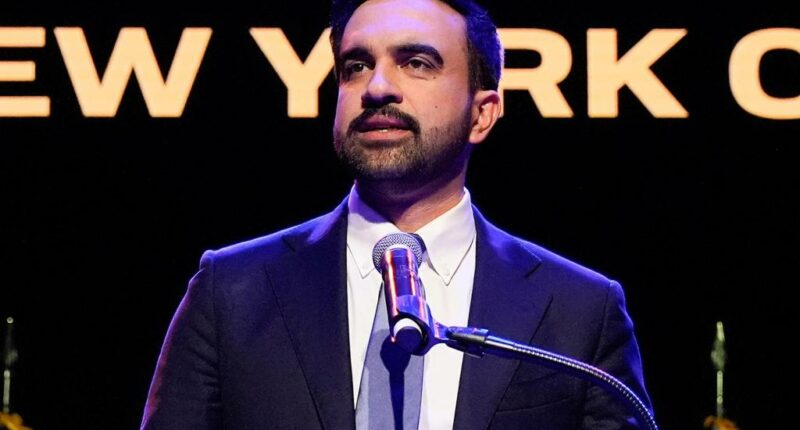Share this @internewscast.com

By RODNEY MUHUMUZA, Associated Press
KAMPALA, Uganda (AP) — The recent success of Zohran Mamdani, who hails from Uganda, in winning the mayoral election in New York, has been noted as a significant political development by Ugandan opposition leaders. However, they also see it as somewhat removed from the political realities faced by many Africans in their home countries.
“It’s a major source of motivation for us here in Uganda, proving that such achievements are within reach,” stated Joel Ssenyonyi, a representative for a district in Kampala. “Nonetheless, we recognize that we have a considerable journey ahead of us to reach similar milestones.”
Uganda, Mamdani’s birthplace in 1991, is currently under the long-standing leadership of President Yoweri Museveni, who has been in power for nearly 40 years. Despite numerous attempts by opposition figures to unseat him, Museveni remains a formidable political force, resisting calls for his retirement as he prepares for another election bid in January. His primary opponent is Bobi Wine, a 43-year-old entertainer who claims he was defrauded in the 2021 elections.
Although Mamdani spent his early years in Uganda, he retained his Ugandan citizenship even after acquiring U.S. citizenship in 2018. His upbringing took him from Uganda to South Africa and eventually to the United States, following his father, Mahmood Mamdani, a noted political theorist. His mother, Mira Nair, is an acclaimed filmmaker with an Academy Award nomination to her name. The family frequently returns to their Kampala residence, including a recent visit to celebrate Mamdani’s wedding.
The influence of his professor father
Mahmood Mamdani, a professor at Columbia University, is renowned for his rigorous teaching style and has significantly shaped his son’s perspectives. Zohran Mamdani’s achievements reflect his father’s influence in the realm of postcolonial studies.
He has written critically of the Museveni government. His most recent book — “Slow Poison,” published in October by Harvard University Press — has juxtaposed the legacies of Museveni and late dictator Idi Amin, who is blamed for the deaths of hundreds of thousands of Ugandans between 1971 and 1979. He argues that both leaders made violence central to their success and that while Amin retained popular support and didn’t die a millionaire, Museveni’s family is immensely wealthy while he’s no longer popular.
Robert Kabushenga, a retired media executive who is friendly with the Mamdani family, said Zohran Mamdani, like his parents, is unconventional. He “follows a tradition of very honest and clear thinkers who are willing to reimagine the politics,” said Kabushenga. “(His father) must be pleasantly surprised.”
Ugandans see hope in more youth joining politics
Mamdani’s victory in New York offers “a beacon of hope” for embattled activists and others in Uganda. The lesson is that “we should allow young people the opportunity to shape, and participate in, politics in a meaningful way,” Kabushenga said.
Okello Ogwang, a professor of literature who has worked with the elder Mamdani at Uganda’s Makerere University, said the son’s success abroad means “it’s an important thing that we should invest in the youth.”
“He’s coming from here,” he said. “If we don’t invest in our youth, we are wasting our time.”
As a shy and soft-spoken teenager, Mamdani was briefly interested in a possible career as a newsman and later was part the rap ensemble Young Cardamom and HAB, whose eccentric music videos set in Kampala can still be viewed online.
Before he became a New York assembly member in 2021, the self-described democratic socialist was a community activist in the New York borough of Queens, helping vulnerable homeowners facing eviction.
His mayoral campaign, whose success in the Democratic primary sent a shockwave through the political world, focused on lowering the cost of living, promising free city buses, free child care, a rent freeze for people living in rent-stabilized apartments and government-run grocery stores, all paid for with taxes on the wealthy. Some Republicans have called for his denaturalization and deportation.
“He breaks new ground,” said Kabushenga. “He is willing to try in places that are new.”
Ssenyonyi, the Ugandan lawmaker, said Mamdani’s unlikely victory, as remote for Ugandans as it seems, deserves to be celebrated. “It inspires us,” he said. “Mamdani is Ugandan-born, like us.”
















